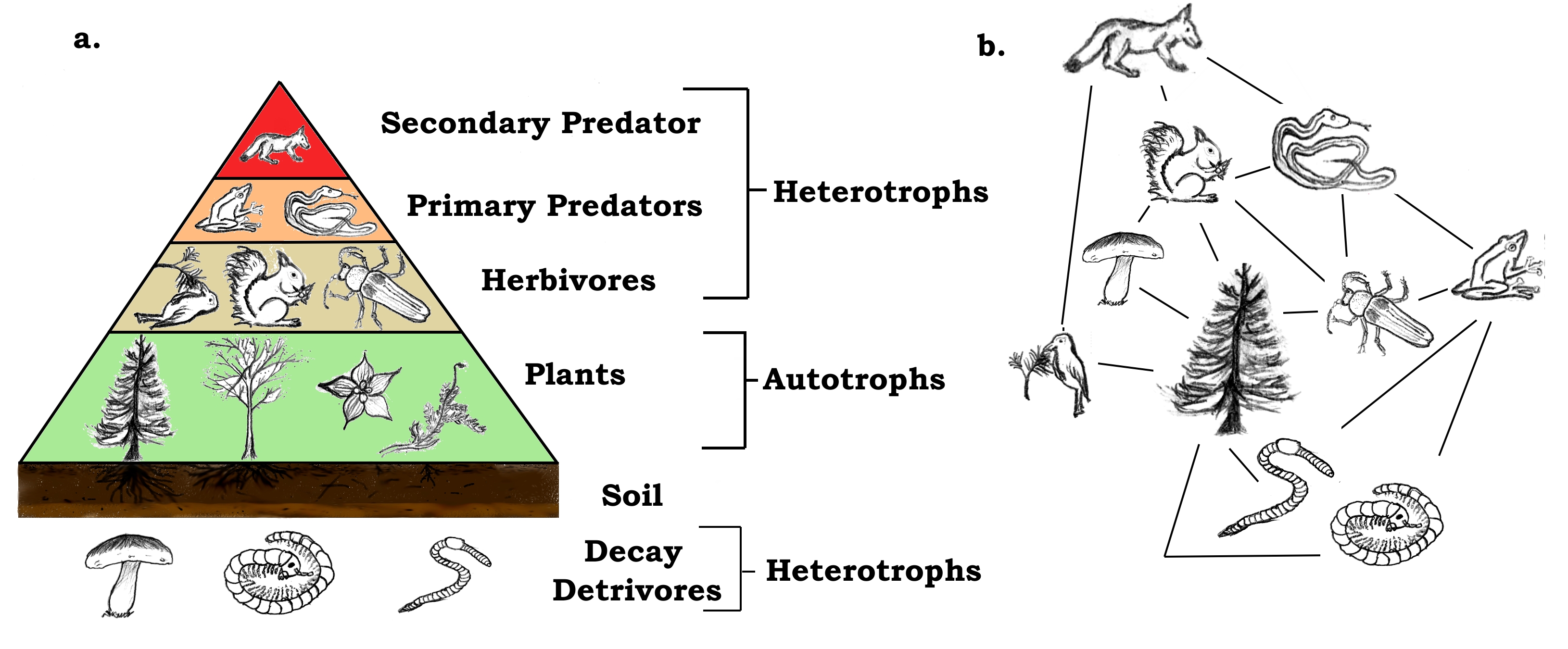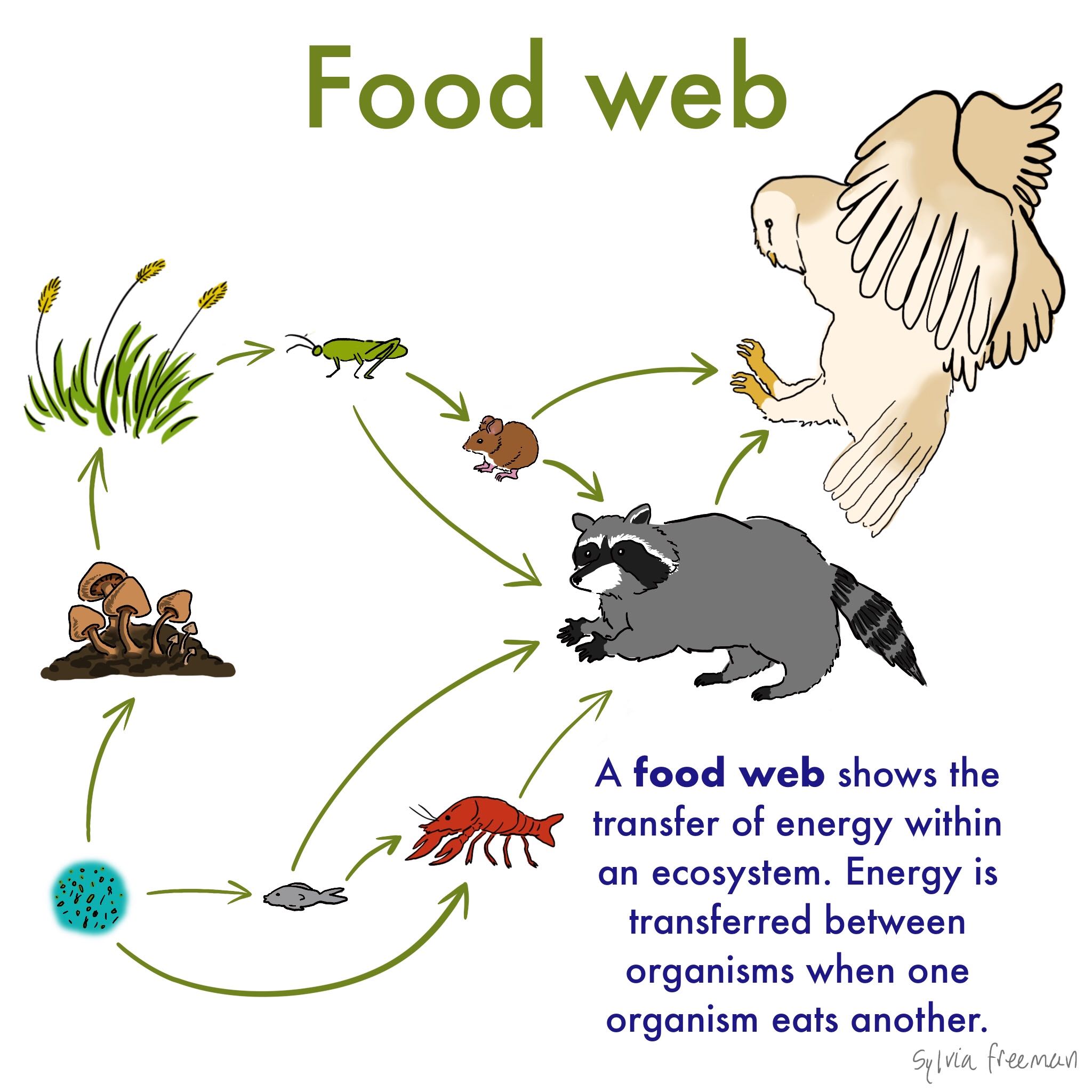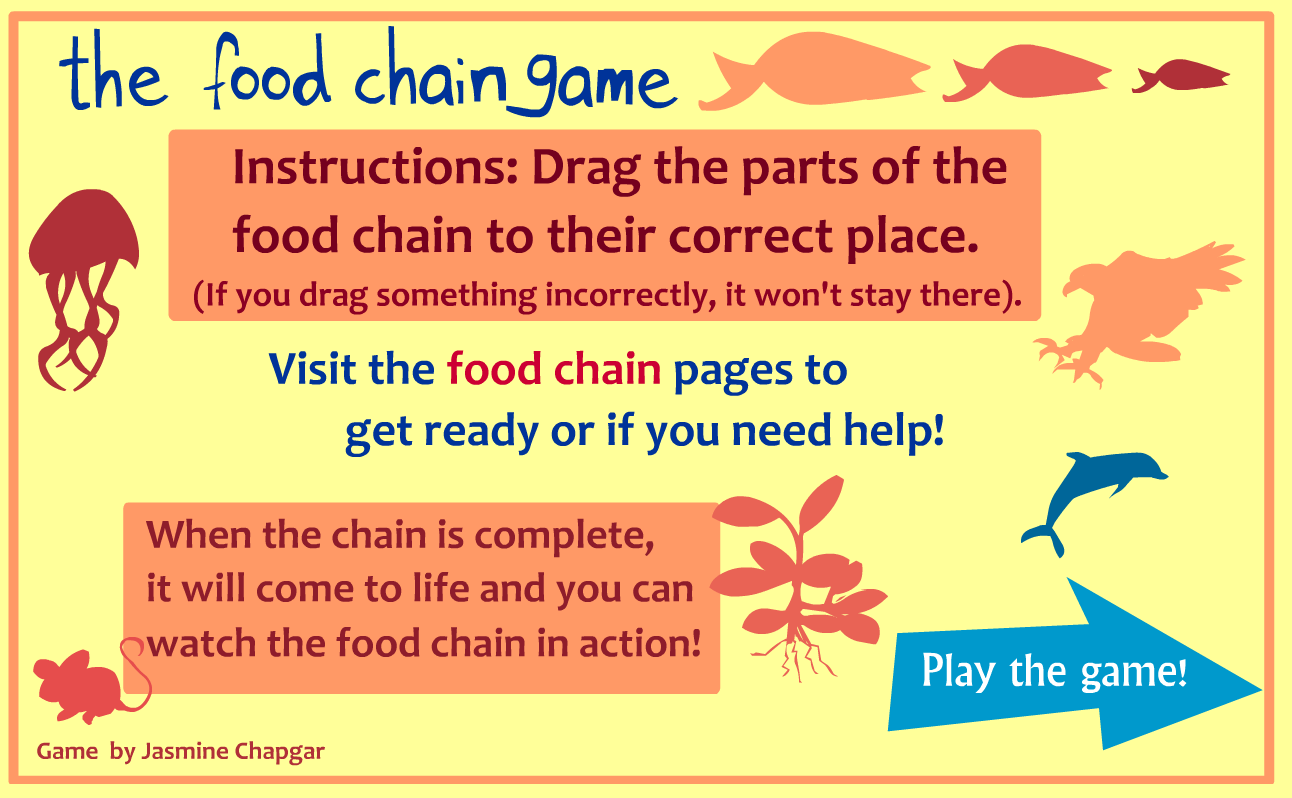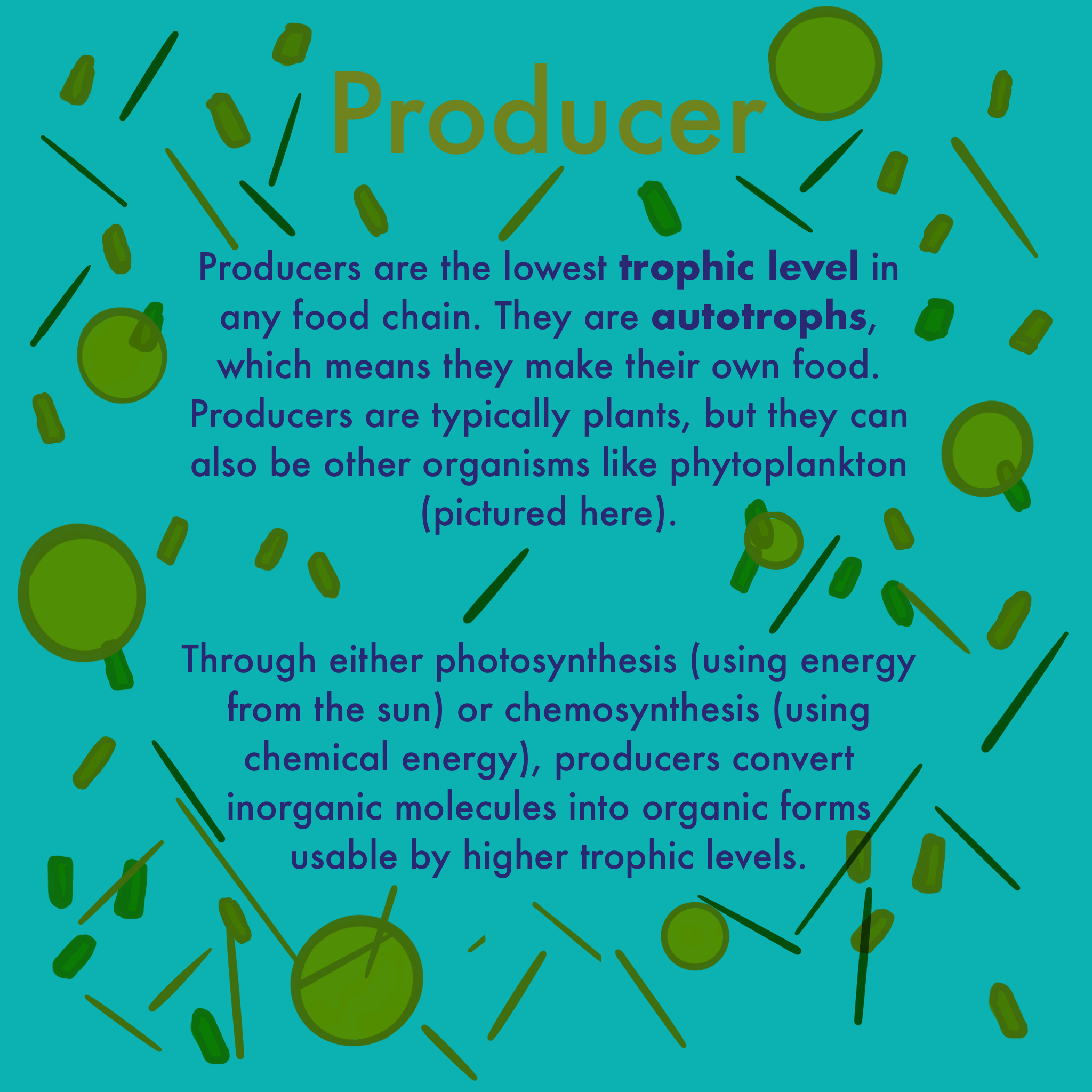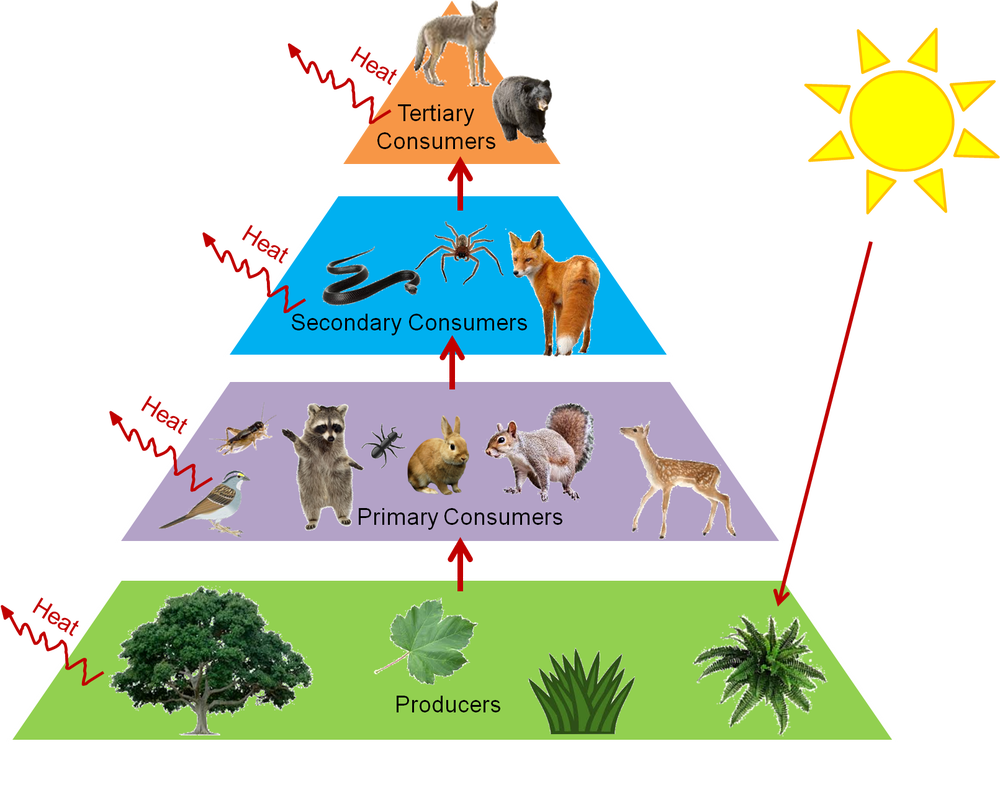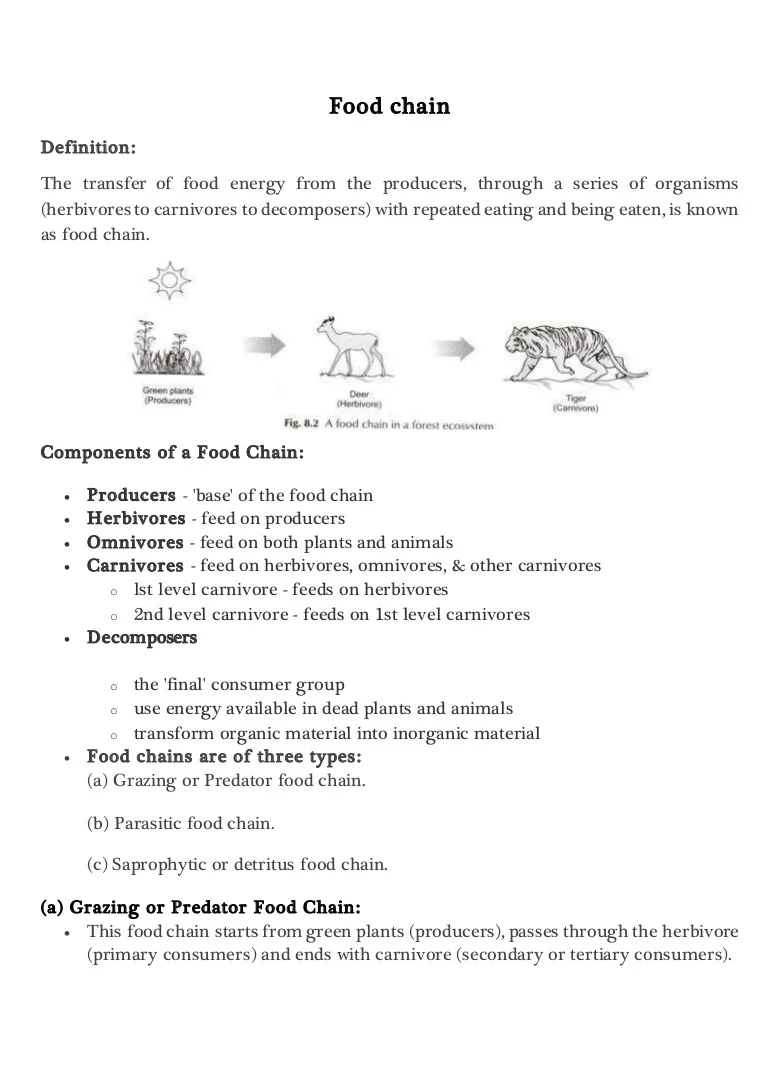Food Chain Definition Ecology

In ecology a food chain is a series of organisms that eat one another so that energy and nutrients flow from one to the next.
Food chain definition ecology. Carl Linnaeus in an ecologically important essay The Economy of Nature Linnaeus Latin 1749. Food ecology is the science which looks at the food production process and assesses the impact each stage of the process has on how plants and animals relate. Food Chains - BrainPOP.
Weve got you covered. This cyclic transfer of food and the relation of food and its consumer are known as the food chain. The food chain describes who eats whom in the wild.
The sequence of organism through which the energy flows is known as food chain. A food chain shows what eats what in a particular habitat. Food chains intertwine locally into a food web because most organisms consume more than one type of animal or plant.
The food chain consists of four major parts. Plants are eaten by insects insects are eaten by frogs the frogs are eaten by fish and fishes are eaten by humans. A food chain is basically made up of producers and consumers.
A food chain is a linear network of links in a food web starting from producer organisms such as grass or trees which use radiation from the Sun to make their food and ending at an apex predator species like grizzly bears or killer whales detritivores like earthworms or woodlice or decomposer species such as fungi or bacteriaA food chain also shows how organisms are. The producers that are capable to produce their own food are called autotrophs. For example grass produces its own food from sunlight.
Food chain in ecology the sequence of transfers of matter and energy in the form of food from organism to organism. Depending on producer and different levels of consumers some examples of food chain are given below. There are likely other naturalists between Linnaeus and Darwin who reported on food chains but attracted little notice.

